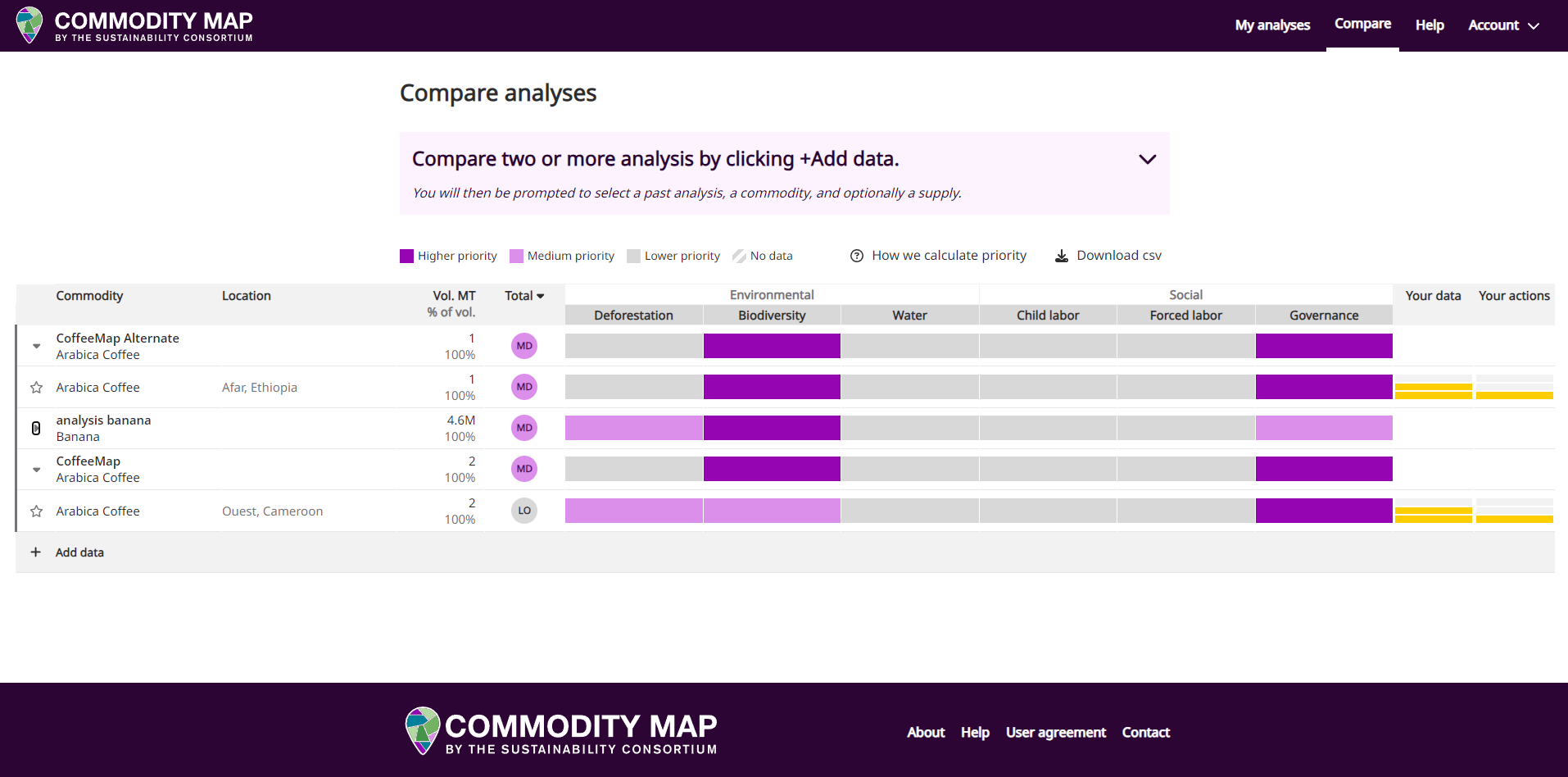CommodityMap is a sustainability analytics platform that uses the origin of a company’s agricultural products to identify potential environmental and social issues.
TEMPE, Ariz., May 2, 2024 – The Sustainability Consortium (TSC) is thrilled to announce the launch of its cutting-edge CommodityMap platform, a cloud-based tool designed to predict environmental and social priorities in agricultural supply chains. Available for free and open to the public, this innovative platform empowers businesses to make informed decisions and take action towards sustainability in their sourcing practices.
CommodityMap cuts through supply chain complexity by utilizing geospatial analytics. In addition to providing users with valuable insights into the sustainability issues associated with their commodity-sourcing regions, the tool makes complicated sustainability data for their agricultural commodities more accessible. With just the country of import, companies can now perform comprehensive analyses, prioritize efforts, and receive science-based recommendations for action.
“We are excited to offer this powerful tool to companies striving to improve the sustainability of their supply chains,” said Christy Slay, CEO of The Sustainability Consortium. “CommodityMap allows businesses to not only identify and prioritize sustainability issues but also provides guidance on actions that improve commodity supply chains.”

Key features of CommodityMap include:
- Insights Without Complex Data Collection: The platform leverages a proprietary model linking trade statistics to production regions, eliminating the need for time-consuming data collection.
- Science-based Recommendations: Users receive actionable recommendations grounded in scientific research, enabling them to drive transparency and address their most pressing sustainability challenges effectively.
- Educate and Engage Your Audiences: CommodityMap provides easy-to-interpret metrics and recommendations that facilitate communication and collaboration with stakeholders across the supply chain.
- Prioritize Action and Compare Analyses: Companies can prioritize issues, compare analyses, and take demonstrable actions to address environmental and social concerns.
CommodityMap builds upon TSC’s commitment to translating sustainability science into practical business tools. With funding provided by the Walmart Foundation, TSC has transformed its existing commodity mapping tool into an accessible online resource, covering the global production of over 100 commodities.
“We believe that access to information is key to driving positive change in supply chains,” said Greg Bohrer, Director at the Walmart Foundation. “By increasing transparency and understanding of environmental and social issues, the CommodityMap platform equips companies with the insights and actionable recommendations needed to build more sustainable value chains.”
The launch of CommodityMap marks a significant step towards creating a more sustainable consumer goods industry. As companies continue to prioritize sustainability, tools like CommodityMap will play a crucial role in guiding their efforts toward meaningful impact.
For more information visit www.sustainabilityconsortium.org/commodity-mapping and to access the CommodityMap platform, visit portal.commoditymap.org.
About The Sustainability Consortium (TSC)
The Sustainability Consortium (TSC) is a global organization transforming the consumer goods industry to use sustainability science and collaboration to deliver more sustainable consumer products. Utilizing science-based tools, services, and an extensive stakeholder network, TSC envisions a world where all consumers can experience the benefits of products without causing harm to people or going beyond the limits of our planet. TSC’s members and partners span various sectors, including manufacturers, retailers, suppliers, service providers, NGOs, governmental agencies, and academics. Established in 2009, TSC is headquartered at Arizona State University, with a European office located at Wageningen University and Research in the Netherlands. For more information, please visit www.sustainabilityconsortium.org.

